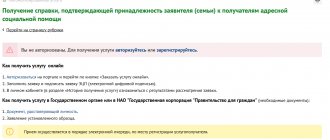Responsibility
The exception is cases when “maternity leave” occurred less than a month after dismissal, and in this case the dismissal at one’s own request was associated with certain circumstances recorded by order of the Ministry of Health and Social Development of Russia dated December 23, 2009 No. 1012n.
These include: All of the above standard forms are used if the enterprise has not developed its own forms. This right has been in effect since 2013. However, most organizations still use standard forms approved by the State Statistics Committee of the Russian Federation in 2004.
Procedure for dismissing a pregnant woman
Labor legislation provides for separate guarantees aimed at ensuring the protection of the labor rights of pregnant women.
In parallel with this, the Labor Code of the Russian Federation (hereinafter referred to as the Code) contains a rule that provides the opportunity for any employee to terminate the employment relationship on his own initiative. How do these two principles interact, and does an employee in a position have the right to pay off work if she has such a desire? What responsibility awaits the employer who deliberately influenced a pregnant woman, inducing her to resign?
Note! The Code in Article 261 defines the prohibition of the employer’s initiation of dismissal of an employee in the provision, but at the same time contains instructions on exceptions to this rule:
- when an individual entrepreneur ceases his activities, or when an organization where a pregnant woman works is subject to liquidation in accordance with the procedure established by law (liquidation can occur either at the initiative of the organization or in accordance with a court decision),
- when a woman is employed under the terms of an employment contract with the replacement of the main specialist for the period of his absence, however, on the condition that the employee cannot be replaced with another job that she could perform with an emphasis on her health.
In any other situation not covered by these exceptions, dismissal will be prohibited and, if carried out, illegal.
When a pregnant employee has entered into a fixed-term contract, but it is coming to an end, the employer must extend its term until the moment of childbirth or until the end of the granted leave in connection with pregnancy (childbirth).
The law prohibits the dismissal of employed employees, even if she commits absenteeism. However, this does not deprive the employer of the opportunity to apply a disciplinary sanction determined by the terms of the internal action documents, provided that this does not contradict the law.
For example, a woman is deprived of the bonus that is usually awarded, etc. Does this mean that the employee has no opportunity to independently terminate the employment relationship with the employer? Of course not. Article 261 of the Code does not define such restrictions; therefore, the provisions of Article 80 of the Code apply.
And during pregnancy, employees have the right to independently initiate dismissal and pay in full. But in this case, both parties to the terminated employment relationship must take into account many features of such a decision.
Need to know! As soon as an application is sent to the employer, the following package of documents is drawn up:
- internal order of the appropriate form (T-8/T8a) for dismissal. This document reflects the basis on which the employee is hired - “at her own request.” Plus denotes Article 80 of the Code, which regulates dismissal. With the prepared order, you must familiarize yourself with the affixing of a personal signature,
- a certificate confirming the amount of salary accrued for the past two current months. She is issued with a work book,
- in the work book the entry is indicated exactly with the wording used in the order,
- a note with calculation (according to the established form No. T-61) for paying the employee the funds due to her,
- a certificate reflecting the data sent to the Pension Fund of the Russian Federation (in accordance with Federal Law No. 27 - subclause 2-2.2 of Article 11),
- entry made in the employee’s personal card (according to form No. T-2). The employee must be made aware of this record. The fact of familiarization is certified by a signature.
The forms listed above are used provided that the organization does not have its own developed and approved forms. The employer has acquired such a right since 2013. Despite this possibility, many organizations find it more convenient to use existing forms, since they take into account all the nuances (they have been approved since 2004 by the State Statistics Committee of the Russian Federation).
The last working day is used by the employer to pay all funds that are due to the pregnant woman, but were not paid to her. In addition to all settlements with the dismissed woman, she is also given a work book.
When the employee was absent from work on her last working day, then she will receive all payments calculated to her as soon as she applies for payment - on the very next day.
Article 80 of the Code does not exclude the use of the standard rule - the dismissed employee must work in the organization for the last two weeks after the notice of resignation. This means that as soon as a woman writes a statement, the next day a two-week period will begin, after which the employee will receive a full payment. This period is necessary for the employer to find another employee for the vacant position.
As soon as this period comes to an end, the woman has the right not to continue performing her work duties - the last 14th day of the period ends her work in the organization.
However, the period determined by Article 80 of the Code is not mandatory - termination of a TD may occur earlier than the specified period. This is where the peculiarity of the application of the norm lies - despite the employer having the right to dismiss an employee, such a condition is not provided for by law.
Note! In the absence of permission from the employer (head of the organization or individual entrepreneur), the pregnant woman will still need to comply with the “two weeks” rule.
The following points stand out from the structure of Article 80 of the Code:
- when TD is terminated at the initiative of the employee, the employer has no right to influence her opinion, and his wishes in this regard are not taken into account. The employer cannot refuse dismissal
- the two-week period is not related to the employee’s direct performance of his or her job duties. Simply put, such “working off” cannot be considered mandatory; dismissal can occur without the employee fulfilling his job duties.
For example, when an employee who is on sick leave (on vacation) writes a letter of resignation two weeks before the scheduled date, which coincides with his return from vacation, then from the moment he returns from vacation, it must be calculated. That is, the two-week period is counted on vacation or sick leave.
As can be seen from the above cases, a woman in this position has the right to quit without working the standard two weeks. Such actions will be completely legal.
When a woman wants to leave her job, but is not on vacation (on sick leave), but continues to work in the organization, then the only way out of dismissal without work is an agreement with the employer.
There is another side to the issue under consideration - does the management of an organization (individual entrepreneur) have the right to deny an employee a position if she decides to pay off her job? Will it be legal for an employer to refuse to terminate a contract? Labor legislation does not provide for such grounds.
Regardless of the woman’s condition, Article 80 of the Code contains no derogations in this regard - the employee is prohibited from evading termination of the employment contract if the pregnant employee wishes to leave.
Article 4 of the Code expressly prohibits the practice of forced labor. It is under this article that a violation of an employer who wishes to refuse to dismiss an employee against her wishes will be qualified.
When a dismissed employee is assessed by the employer as a highly qualified specialist, he has no right to create obstacles to her departure. The only acceptable request is to remain at the same job.
The law provides for “maternity leave” for this category of employees - in connection with pregnancy (childbirth), and separately - for caring for a newborn child. For the entire specified period, the woman is on the employer’s staff, therefore, all due payments to the funds must be made for her - it is for this reason that employers consider such situations as unprofitable.
Rights of pregnant women at work under the Labor Code.
It is this kind of dissatisfaction that prompts some employers to put pressure on employees in this situation - they force them to pay off their jobs, supposedly “on their own initiative.” What should a woman do if her employer insists on dismissing her during pregnancy?
The following steps should be followed:
- Under no circumstances should you submit any statements under pressure from others. Remember, if the document is drawn up, even under pressure from the employer, the fact that the employee wrote it independently, with his own hand, reduces the possibility of subsequent restoration and receipt of compensation to “no”. However, there is a chance, but it is insignificant,
- record the fact of external pressure. To do this, you will need to find witnesses who are ready to confirm your words. The presence of audio recordings or videos will significantly influence the decision. Other evidence is also acceptable. The collected evidence must confirm the existence of demands to resign,
- draw up a separate complaint about the employer’s illegal actions and submit it to regulatory authorities. An effective approach would be to contact the Prosecutor's Office. When making a complaint, outline in detail all the circumstances of the violation and demand that the culprit be held accountable,
- If your dismissal has taken place, contact the judicial authorities to protect and restore your rights.
Any cases of pressure exerted by the employer on an employee in this position (including uttering threats and blackmail) will entail holding him accountable.
In such circumstances, the employee is expected to receive the appropriate type of sanction:
- administrative - illegal actions are qualified under Article 5.27 of the Code of Administrative Offenses of the Russian Federation,
- criminal - acts are qualified under Article 145 of the Criminal Code of the Russian Federation.
Administrative norms determine liability only for facts of discrimination, while criminal norms indicate the obvious groundlessness and illegality of the fact of dismissal of a pregnant employee.
The guilty person faces the following sanctions:
- fine - up to 200,000 rubles. or other income received for a period of 1.5 years,
- compulsory work – up to 360 hours.
It should be borne in mind that although liability for a crime is very modest compared to other criminal articles, the imposition of sanctions means a real conviction and other legal consequences.
How to quit without working while pregnant
To avoid unpleasant situations and problems, the woman should provide the employer with a corresponding certificate from the supervising doctor. In addition, the employer can request this document again, but not more often than once every three months, until going on maternity leave.
If there are no suitable positions in the company or the employee refuses to transfer to another job, then it is possible to terminate the employment contract on this basis.
By decision of the parties (read more...)
Comparison table for reasons for dismissal
| Reason for dismissal of a pregnant woman | In what cases is dismissal possible? | Sequencing |
| On the personal initiative of the employer | Impossible | A woman has the right to file a lawsuit demanding reinstatement and payment of compensation. |
| If the pregnant woman has not passed the probationary period | Impossible | After presenting a pregnancy certificate, a woman automatically goes through a probationary period |
| For violation of discipline | Impossible | Only disciplinary action or reprimand is possible |
| During company reorganization | Impossible | Another position must be provided |
| As a result of the liquidation of the company | Possibly upon complete liquidation of the organization or closure of the individual entrepreneur. | Paid: severance pay, vacation pay, average salary retained for two months |
| Upon expiration of the fixed-term contract | Possibly if the woman did not provide a certificate before her dismissal. | If the certificate is provided on time, the employment contract should be extended until the end of the pregnancy |
| If a permanent employee returns to work and was replaced by a temporary employee who finds herself in a situation | Possibly if the employer cannot offer the pregnant woman another position, or if she refuses it | The employee has the right to apply for another position in the company (with suitable working conditions) |
| At the initiative of an employee | It's always possible | The application must be submitted two weeks in advance, work is required, maternity benefits are not paid |








